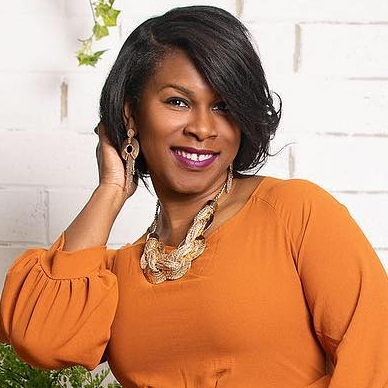Notes on faith: On women’s work and women’s worth
Reflecting on Black Women’s Equal Pay Day, Rev. Dr. Alisha Lola Jones discusses the consistent devaluation of Black women’s work The post Notes on faith: On women’s work and women’s worth appeared first on TheGrio.

Reflecting on Black Women’s Equal Pay Day, Rev. Dr. Alisha Lola Jones discusses the consistent devaluation of Black women’s work — even in spiritual spaces.
“Notes on faith” is theGrio’s inspirational, interdenominational series featuring Black thought leaders across faiths.
Thursday, July 27, was Black Women’s Equal Pay Day 2023, an “un-holiday” that recognized the significant pay disparity Black women in America experience on average — 67 cents to every dollar made by white, non-Hispanic men. While the disparity isn’t new, this year took me by surprise, unexpectedly getting me all up in my feelings as flashbacks of my early years in the clergy had me seeing red.
If I had looked back or stayed at the last congregation where I was exploited while working on ministerial staff, I would have turned into a pillar of salt and lost my religion. As in far too many industries, all the men were compensated, featured, or subsidized in some way or another, while I and other highly skilled women were propped up in the name of inclusion; in this instance, at a trendy congregation where it was ultimately revealed there was no substance behind its facade.
Sisters, regardless of all the titles we wear in our personal and professional lives, I know you likely know what being overworked and undervalued can look like, right?

For me, a graduate student at the time, things came to a head when I found myself dealing with a medical emergency, weary from serving so much yet not having the benefits, brawn, or backing financially to take time off to heal. I had to make real decisions about the ways in which I invested my time and energy, particularly my work for the church, where I labored tirelessly in the name of love.
In short, like many other Black women, I fell prey to a type of “mamification” womanist and Black feminist scholars like EbonyJanice and Angela Y. Davis have long warned against. Inspired by Davis, EbonyJanice writes in “All the Black Girls Are Activists” that “mamification” is the long-held notion that Black women have been made to mother and serve all in the U.S. social construct instead of prioritizing ourselves. Ironically, my servitude and attempts at selflessness were not empowering my community to respond to me in the ways I needed.
This culturally emphasized idea of service affects us in every sphere of the marketplace, including faith communities, because we have not critically analyzed the ways in which that language and imagery can be weaponized. In faith-based circles, it is undermining our growth through our theology.
As I discerned my call to serve God, I was already certain that I needed formal training to withstand the scrutiny I’d seen women before me experience. Coming from four generations of women in ministry, I had observed firsthand the ways in which Black women experience indignities in pulpit, music, and lay ministries. What I did not anticipate were the invisible ways in which we are exploited in ministry, even when we are visible, sought-after contributors in our faith communities. Unfortunately, some women internalize the exploitative values that keep us in the bottom economic caste.
I would eventually heed the advice of many Black women both within and outside the ministry and pursue a path of servant-leadership that centers self-care as an imperative. For me, this meant leaning into the balancing of life and work that constantly challenges women within a patriarchal society accustomed to unlimited access to our labor.
There was something too confining and regimented about committing to specific orders and forms of worship anyway; I felt led to do something different than I had seen. Call it a generational imperative, but in 2011, as the capacity for focused use of social media burgeoned, my sister Rev. Angela and I used Facebook to launch “Move and Shake: Academic Women Connecting in the Journey,” a peer mentoring collective of women who sought to be unapologetically Black, brilliant, and in pursuit of doing the personal homework for life-work balance. The group has since grown into the thousands.
Centering self-care and preservation in your servant-leadership or support roles is vital for your sustainability, vitality and self-possession. You also belong to the cosmos, and this is no understatement. Self-care keeps you rooted in the Divine, and being rooted in the Divine elevates your spiritual vibration, ensuring your legacy lives beyond you.
I can attest that creating space for self-care as the root of all conversations about navigating work has opened up spaces to walk alongside other Black women through milestones, sharing visions with like-minded sisters, and launching other great endeavors — while simultaneously pushing through the disparities Black women face. When self-care and preservation are centered, we are equipped to fight this fight.
Having walked with some of the leading Black women and the launch of their virtual platforms, I offer five insights for situating oneself well despite exploitative work environments, regardless of your industry:
Know your worth: In male-dominated circles, women’s labor often goes unnoticed, is rendered invisible and is under or uncompensated. To gain confidence in advocating for yourself, as you take inventory of your roles, ask the question: Am I adding value? Reviewing our worth with this question brings clarity when negotiating your role. If you have doubts about the ways in which you are adding value, consider reevaluating your level of involvement whenever possible.
Seek out peer mentorship: There is room for us all, and there is no greater asset than women supporting women. Even in spaces of faith, there can be a competitive mindset among the sisterhood. Be sisterly and receptive to the women you admire, always adding value to their work and being open to their input as you progress. Contribute to their projects as though they are your own and ask for the help you need.
Promote women’s leadership development: Continue to train and develop so that the opportunity to lead will never be too big. Invest in your skills through certifications and various forms of further education to ensure you are current in your tools.
Accept brotherly advocacy: Seek out and accept competent male-identified advocates. I want to give a shout-out to my brothers — including my life partner — who have partnered with me on my path to ministry and are willing to amplify my voice on this path. These brothers have been transparent about the level of resources that they receive, and when financially able, they make sure that I am duly compensated. Too often, the workplace is dominated by men and women with unconscious bias against women. There are men out there who know and do better.
Cultivate a relationship with supporters: Be intentional with whom you invest your talent. Disclose to people how they may support you, particularly as women forging their own paths in the cultivation of cooperative economics. Developing various forms of income, including passive income, is an important aspect of sustainability in a flourishing career.
May the Creator’s voice be the loudest.
May you be empowered to author your own way of serving and being served in the world.
May you have the courage to walk away unapologetically from the communities that don’t replenish you.
May you find your tribe and be amplified, knowing that you are filled with experience, wisdom, and resources.

Rev. Dr. Alisha Lola Jones is a faith leader helping people to find their groove in a fast-paced world, as a consultant for various arts and faith organizations and professor of music in contemporary societies at the University of Cambridge in Cambridge, England. She is an award-winning author of Flaming? The Peculiar Theopolitics of Fire and Desire in Black Male Gospel Performance (Oxford University Press). For more information, please visit DrAlisha.com.
TheGrio is FREE on your TV via Apple TV, Amazon Fire, Roku, and Android TV. TheGrio’s Black Podcast Network is free too. Download theGrio mobile apps today! Listen to ‘Writing Black‘ with Maiysha Kai.
The post Notes on faith: On women’s work and women’s worth appeared first on TheGrio.












